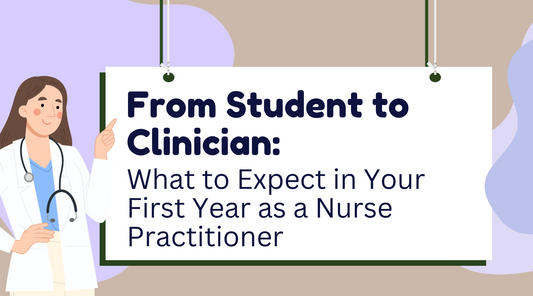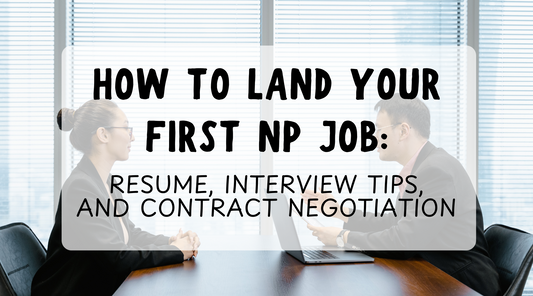How to Ace Your Nurse Practitioner Job Interview
Navigating a nurse practitioner (NP) job interview is about more than just rehearsing answers to expected questions. It's an opportunity to demonstrate your expertise, professionalism, and commitment to patient care. It's also a chance to evaluate whether the organization is the right fit for your career aspirations.
To help you confidently excel, here are seven in-depth tips for preparing and succeeding in your NP interview:
1. Conduct Thorough Research on the Organization
Understanding the organization shows interviewers that you're genuinely invested in the role. Dive deep by:
- Reviewing the organization’s mission, values, and history through its website.
- Exploring recent news articles or updates about their initiatives.
- Checking patient reviews (if applicable) to understand their reputation.
Tailor your responses to reflect alignment with their priorities and mention specific insights you’ve learned during your research.
2. Know the Role Inside and Out
Before stepping into the interview, analyze the job description and make sure you’re clear on the key responsibilities, qualifications, and preferred skills. To prepare:
- Identify how your previous experiences align with the role’s requirements.
- Create examples of how you’ve excelled in areas relevant to the position, such as managing complex cases or improving patient outcomes.
Being familiar with the expectations demonstrates preparedness and ensures your answers are specific to the position.
3. Prepare for Behavioral Interview Questions
Behavioral questions assess how you’ve handled situations in the past. These might start with, "Tell me about a time when..." Use the STAR Method to structure your responses:
- Situation: Describe the context or challenge.
- Task: Explain your role in addressing it.
- Action: Detail the steps you took to resolve the issue.
- Result: Highlight the positive outcome or lesson learned.
Examples might include resolving conflicts, adapting to fast-paced environments, or collaborating with other providers on patient care.
4. Showcase Your Clinical Expertise
Your clinical skills are a cornerstone of your role as an NP. Be ready to discuss:
- The patient populations you’ve worked with and the procedures you’ve performed.
- Cases where you’ve successfully assessed, diagnosed, and created comprehensive treatment plans.
- Your commitment to evidence-based and patient-centered care.
Use specific examples that highlight your ability to manage complex cases or innovate within your practice.
5. Demonstrate Excellent Communication Skills
Effective communication is essential in healthcare. Showcase this ability by:
- Clearly articulating your answers during the interview.
- Listening actively and responding thoughtfully to questions.
- Offering examples of how you communicate medical information effectively with both patients and colleagues.
Be prepared to share strategies for building rapport with patients, fostering collaboration within teams, and navigating cultural or linguistic barriers in care.
6. Emphasize Your Commitment to Growth and Learning
Nurse practitioners are expected to continually advance their skills. Demonstrate your dedication by discussing:
- Continuing education, certifications, or workshops you’ve completed.
- Participation in professional organizations or healthcare conferences.
- Interest in pursuing advanced degrees, subspecialties, or leadership roles.
By showcasing your dedication to ongoing learning, you signal your desire to grow alongside the organization.
7. Ask Insightful and Thoughtful Questions
At the end of the interview, asking intelligent questions is your chance to learn more and leave a lasting impression. Some great examples include:
- “What does a typical day in this role look like?”
- “How does this organization support professional development for NPs?”
- “What do you personally enjoy most about working here?”
Asking meaningful questions demonstrates your interest in the role and helps you evaluate whether the organization aligns with your career goals and values.
Succeeding in your NP interview requires a combination of preparation, confidence, and authentic passion for healthcare. By researching the organization, mastering the role’s requirements, practicing behavioral responses, highlighting clinical and communication strengths, and showing a commitment to professional growth, you position yourself as a top candidate.
Remember to stay calm and authentic while approaching the interview as an opportunity to showcase your skills, values, and enthusiasm for advancing patient care. Best of luck on your journey to securing your dream nurse practitioner role!



